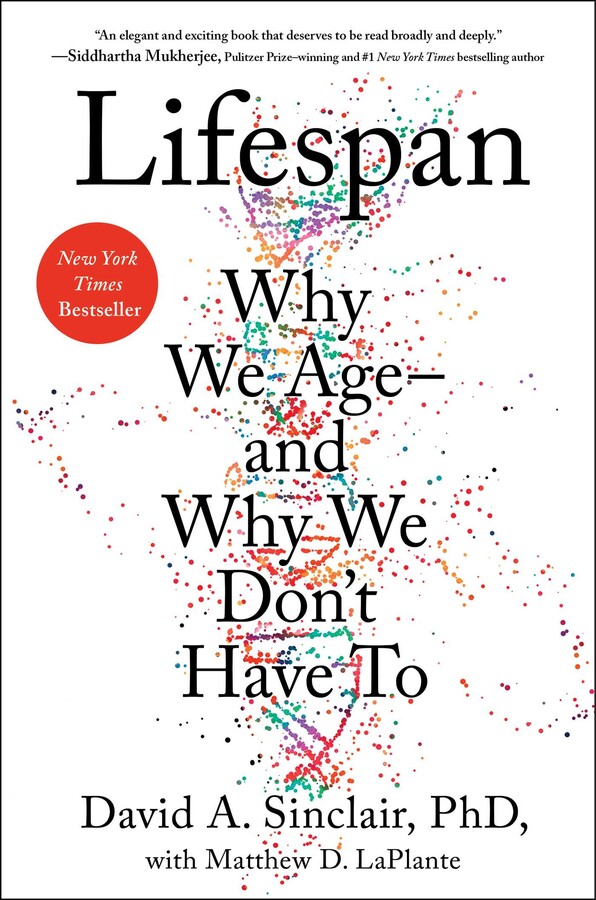STRENGTH SENSEI BOOKSHELF
Lifespan: Why We Age − and Why We Don’t Have To
An in-depth look into what’s new in the field of anti-aging research
In the 80s, Durk Pearson and Sandy Shaw made headlines with their bestselling book, Life Extension: A Practical Scientific Approach. They presented controversial theories about using supplementation to live longer and became heavily involved in fighting the FDA’s regulation of nutritional supplements. In recent years, the champion of life extension through natural methods has been David A. Sinclair, Ph.D.
Academically, Sinclair is the real deal. At Harvard Medical School, Sinclair serves as a professor in the Department of Genetics and is co-director of the Paul F. Glenn Center for Biology of Aging Research at Harvard Medical School. Sinclair also serves on the editorial board of the journal Aging, a peer-review journal that provides the latest research in age-related diseases and life extension.
Sinclair reaches beyond the Ivory Tower world of academia to share his anti-aging findings, and his efforts have not gone unnoticed. He has been listed as one of the Most Influential People in the World by Time magazine and has appeared on popular shows such as “The Joe Rogan Experience.” If you visit OwlTail.com, you can find links to 52 podcasts where Sinclair appeared.

Sinclair’s 432-page book, Lifespan:Why We Age –and Why We Don’t Have To, was published in 2019 and became the #1 Best Seller in Amazon’s Genetic Health section. It’s massive at 432 pages, but it’s an easy read, with Sinclair sharing personal experiences, anecdotes, and presenting his findings like a detective trying to uncover a murder mystery.

The premise of the Lifespan is that aging should be treated as a disease and offers advice on what you can do to treat it and insight into what researchers are discovering to slow down the aging process. He discusses drugs such as rapamycin and metformin, cellular reprogramming involving nutritional supplements, and gene therapy. Many of Sinclair’s ideas are based on mice research, so could be regarded as “exuberant speculation.” For example, when mice were given rapamycin, they lived up to 20 percent longer, but those results don’t necessarily apply to humans as our metabolism is different.
Much of what Sinclair shares with the reader is not new regarding practical advice for life extension. Among his suggestions are focusing on a plant-based diet, restricting sugar intake and intake of red meat, performing interval training (at least 15 minutes each day), and fasting. Sinclair says he does not know what type of fasting is best, but that some type of moderate fasting is better than no fasting and that periodic fasting doesn’t cause malnutrition. As a starting point, he offers the 16:8 method, a time-restricted approach in which you eat for 8 hours and fast for 16.
For those who don’t have the time to spend a few hours a day for several weeks reading Lifespan, consider picking up a copy of Summary of Lifespan:Why We Age –and Why We Don’t Have To by High Speed Reads. An independent analysis of Sinclair’s book, it provides summaries of each chapter, analysis of the book, discussion questions, and an action plan to begin applying Sinclair’s ideas to your lifestyle.
If you have the time, pick up a copy of Lifespan and get caught up on the field of life extension. If you need more time, consider following his advice on eating well and exercising smarter!
[You can purchase Lifespan:Why We Age –and Why We Don’t Have To by David Sinclair, Ph.D., through Amazon.com.It is also available as an audiobook.)
